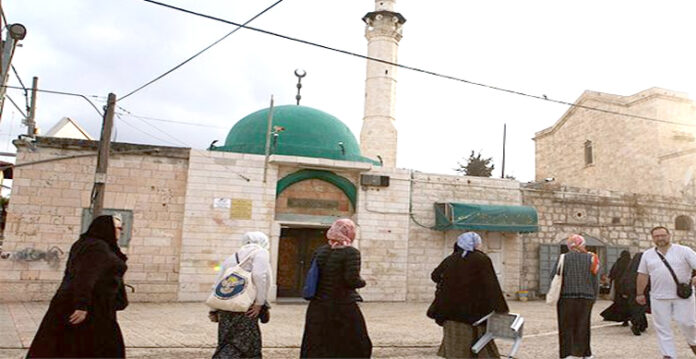In a controversial decision that has ignited widespread debate, Israel has officially banned the broadcast of the Azaan (call to prayer) over loudspeakers from mosques. The move, announced by Israeli National Security Minister Itamar Ben Gvir, was intended to curb what he described as a disturbance caused by the Muslim community to the Jewish population. The decision has drawn sharp criticism from various political leaders and human rights organizations.
According to a report by Channel 12, Minister Ben Gvir instructed the police to enforce the ban, issuing penalties and confiscating loudspeakers used for the Azaan. The minister stated that the practice of broadcasting the call to prayer at high volumes had become a “menace” to Israeli society, particularly in urban areas where it is most noticeable. He argued that the loud sounds are unnecessary and should no longer be tolerated.
Ben Gvir further claimed that several Arab countries and Western nations had already implemented similar rules regarding the use of loudspeakers for religious calls to prayer. However, he emphasized that Israel could no longer ignore the issue, asserting that it was time for action.
Also Read: Hindu bodies to launch campaign against ‘Azan’ in Karnataka
The decision has been met with swift condemnation from various quarters. Leaders from the Arab world and several human rights organizations have strongly objected to the ban. A representative from the United Arab List, a political party representing Israel’s Arab community, accused the Israeli government of targeting mosques and violating religious freedoms. The leader described the ban as an unfair and discriminatory action against the Muslim community in Israel.
Human rights groups also voiced their concerns, calling the ban a clear example of disparity against minority groups. They argue that the decision undermines the right to religious expression and exacerbates tensions between the Jewish and Arab communities in Israel.
The Azaan, traditionally broadcast from mosque minarets five times a day, is an integral part of Muslim worship and community life. While the practice of broadcasting the call to prayer has faced objections in various countries, particularly in the West, the ban in Israel marks a significant escalation in the debate over religious freedoms and the relationship between the state and its minority communities.
The decision has further strained the already complex and sensitive dynamics between Israel’s Jewish majority and its Arab minority, which makes up about 20% of the population. As the situation unfolds, many are calling for dialogue and greater respect for the cultural and religious rights of all communities in Israel.
(This story is sourced from a third-party syndicated feed. Raavi Media takes no responsibility or liability of any nature. Raavi Media management/ythisnews.com can alter or delete the content without notice for any reason.)


